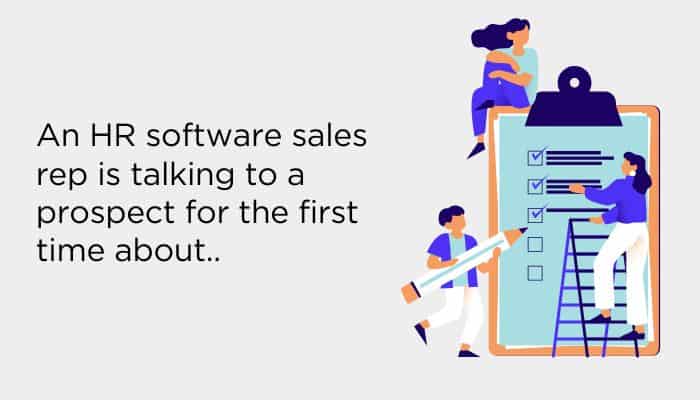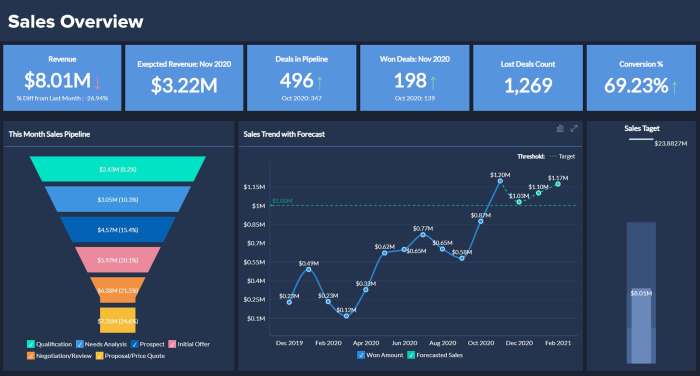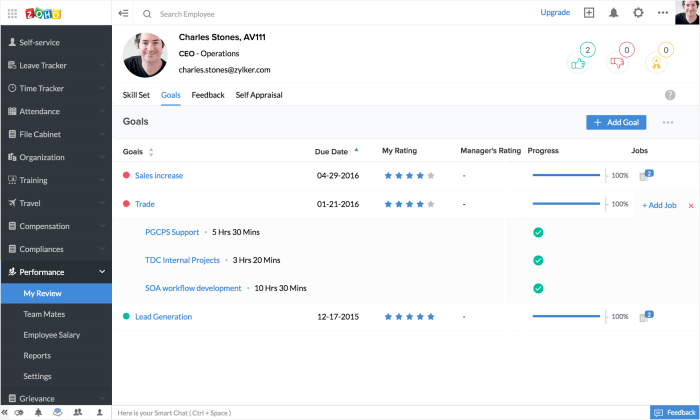An HR software sales representative is the driving force behind the implementation of innovative HR solutions, shaping the future of human resources management. With a unique blend of technical expertise and interpersonal skills, these professionals play a pivotal role in empowering organizations to optimize their HR processes and maximize employee potential.
In this comprehensive guide, we delve into the world of HR software sales reps, exploring their responsibilities, target audience, value proposition, sales strategies, and industry trends. Discover how these professionals leverage technology and human connection to transform HR departments and drive organizational success.
HR Software Sales Rep
An HR software sales representative is responsible for selling and promoting HR software solutions to businesses and organizations. They work with potential clients to understand their HR needs and identify how the software can help them streamline their HR processes, improve employee engagement, and achieve their business goals.
Key responsibilities of an HR software sales representative include:
- Prospecting for new clients and building relationships with key decision-makers
- Understanding the client’s HR needs and challenges
- Demonstrating the software’s features and benefits
- Negotiating contracts and closing deals
- Providing ongoing support and training to clients
Successful HR software sales representatives typically have a strong understanding of HR best practices, as well as sales and marketing techniques. They are also excellent communicators and have a deep understanding of the HR software market.
Skills Required for Success
- Strong sales and negotiation skills
- Excellent communication and presentation skills
- Deep understanding of HR best practices
- Knowledge of HR software products and services
- Ability to build and maintain relationships with key decision-makers
- Strong work ethic and self-motivation
Target Audience and Market Analysis

Understanding the target audience and analyzing the market landscape is crucial for the success of HR software solutions. By identifying the specific needs and challenges faced by businesses, we can tailor our solutions to meet their unique requirements.
Target Audience
The target audience for HR software solutions includes businesses of all sizes, across various industries. Key decision-makers within organizations, such as HR managers, executives, and business owners, are responsible for selecting and implementing HR software to streamline their HR processes.
Market Size, Growth Potential, and Competitive Landscape, An hr software sales rep
The global HR software market is estimated to reach $35 billion by 2027, driven by the increasing adoption of cloud-based solutions and the need for efficient HR management. The market is highly competitive, with established players such as SAP, Oracle, and Workday dominating the landscape.
However, there are also numerous emerging vendors offering innovative and cost-effective solutions.
Value Proposition and Differentiation
HR software solutions offer a unique value proposition that sets them apart from traditional HR practices. They provide comprehensive functionality that addresses the entire HR lifecycle, from recruitment and onboarding to performance management and offboarding. By leveraging automation, data analytics, and self-service capabilities, HR software streamlines HR processes, improves efficiency, and enhances employee engagement.
Key features that differentiate HR software from competitors include:
- Centralized data management:Stores all employee data in a single, secure location, providing a comprehensive view of the workforce.
- Automated workflows:Streamlines HR processes, reducing manual tasks and improving efficiency.
- Data analytics:Provides insights into workforce trends, employee performance, and HR metrics, enabling data-driven decision-making.
- Self-service capabilities:Empowers employees to manage their own HR information, reducing the burden on HR teams.
- Mobile accessibility:Allows employees to access HR services anytime, anywhere, on any device.
Integration with other systems
Modern HR software solutions integrate seamlessly with other business systems, such as payroll, finance, and collaboration tools. This integration enables data sharing and streamlined workflows, reducing the need for manual data entry and improving overall operational efficiency.
An HR software sales rep plays a crucial role in the growth of any company. They are responsible for understanding the needs of their clients and providing them with the best possible solutions. Kabul by Saib e Tabriz is a great example of how poetry can inspire us to think about the world around us.
An HR software sales rep can learn a lot from this poem about the importance of empathy and understanding.
Sales Process and Strategy
The sales process for HR software typically involves several key stages, including lead generation, qualification, proposal submission, negotiation, and closing. Effective sales strategies and techniques are crucial for success in this competitive market.
Understanding the target audience’s needs, pain points, and decision-making process is essential. Sales representatives should tailor their approach to resonate with specific industry verticals, company sizes, and organizational challenges.
Lead Generation
Lead generation is the foundation of the sales process. It involves identifying potential customers who have a need for HR software solutions. Effective lead generation techniques include attending industry events, leveraging social media, and utilizing marketing automation tools.
Qualification
Once leads are generated, it’s crucial to qualify them to determine their readiness and potential fit for the HR software. This involves assessing their budget, timeline, and specific requirements. Sales representatives should ask probing questions to uncover pain points and identify opportunities for value creation.
Proposal Submission
The proposal submission stage involves presenting a tailored proposal that Artikels the value proposition of the HR software solution. It should clearly articulate how the software addresses the customer’s specific needs, provides quantifiable benefits, and aligns with their long-term goals.
Negotiation
Negotiation is an integral part of the sales process. Sales representatives should be prepared to discuss pricing, implementation timelines, and other contract details. Effective negotiation skills involve finding common ground, understanding the customer’s priorities, and creating a win-win outcome.
Closing
The closing stage is the culmination of the sales process. It involves securing the customer’s commitment to purchase the HR software solution. Sales representatives should recap the value proposition, address any remaining concerns, and facilitate the final decision-making process.
Customer Relationship Management

Building and maintaining strong customer relationships is paramount for the success of any business. In the HR software industry, fostering positive relationships with clients is crucial for driving sales, ensuring customer satisfaction, and generating referrals.Effective customer relationship management (CRM) involves understanding the needs and expectations of clients, proactively addressing their concerns, and resolving issues promptly and efficiently.
By prioritizing customer satisfaction, businesses can build long-lasting relationships that drive repeat business and loyalty.
Managing Customer Expectations
Managing customer expectations is essential to prevent misunderstandings and ensure customer satisfaction. Sales representatives should clearly communicate the capabilities and limitations of the HR software solution, setting realistic expectations from the outset. Regular check-ins and open communication can help identify any gaps between expectations and reality, allowing for timely adjustments and proactive problem-solving.
Resolving Customer Issues
Inevitably, issues may arise during the sales process or after implementation. Prompt and effective resolution of customer issues is crucial for maintaining positive relationships. Sales representatives should be equipped with the knowledge and resources to address customer concerns, escalating issues to appropriate support teams when necessary.
By handling issues professionally and efficiently, businesses can demonstrate their commitment to customer satisfaction and build trust.
Case Studies and Success Stories

Showcase the value of HR software solutions through real-world examples of how businesses have benefited from their implementation. Highlight quantifiable results and positive testimonials from satisfied customers.
Success Story 1
Company:XYZ Corporation
Industry:Technology
Challenge:Manual HR processes were causing delays and errors in recruitment and onboarding.
Solution:Implemented an HR software solution that automated workflows and streamlined processes.
Results:Reduced time-to-hire by 30%, improved candidate experience, and increased employee engagement.
Success Story 2
Company:ABC Manufacturing
Industry:Manufacturing
Challenge:Needed to improve employee performance management and provide personalized development opportunities.
Solution:Implemented an HR software solution with performance management and learning modules.
Results:Increased employee performance by 15%, reduced employee turnover, and improved succession planning.
Customer Testimonial
“Our HR software solution has transformed our HR department. It has saved us time, reduced errors, and improved our ability to attract and retain top talent.”
HR Manager, XYZ Corporation
Marketing and Communication
Marketing and communication play a pivotal role in promoting HR software solutions by increasing brand awareness, generating leads, and driving sales. Effective marketing campaigns and content strategies are crucial for reaching target audiences, educating them about the benefits of HR software, and ultimately persuading them to make a purchase.
Effective Marketing Campaigns
Successful marketing campaigns for HR software solutions often involve a combination of channels, including:
- Content marketing:Creating and distributing valuable, relevant, and consistent content to attract and retain a clearly defined audience.
- Search engine optimization ():Optimizing website content and structure to improve visibility in search engine results pages (SERPs).
- Social media marketing:Engaging with potential customers on social media platforms to build relationships and promote brand awareness.
- Email marketing:Nurturing leads and promoting products and services through targeted email campaigns.
- Paid advertising:Using paid channels such as Google AdWords and social media ads to reach specific audiences.
Industry Trends and Future Outlook: An Hr Software Sales Rep

The HR software industry is constantly evolving, driven by technological advancements and changing workplace dynamics. Emerging trends include:
- Artificial Intelligence (AI) and Machine Learning (ML):AI and ML are revolutionizing HR processes, from automating tasks to providing data-driven insights for decision-making.
- Employee Experience (EX):HR software is increasingly focused on enhancing employee experience, creating personalized and engaging experiences throughout the employee lifecycle.
- Remote and Hybrid Work:The rise of remote and hybrid work has accelerated the demand for HR software that supports distributed teams and facilitates collaboration.
- Data Analytics and People Analytics:HR software is becoming more data-driven, enabling organizations to analyze workforce data and make informed decisions based on insights.
- Integration with Other Systems:HR software is increasingly integrated with other business systems, such as ERP and CRM, to streamline processes and improve data sharing.
Potential Growth Areas and Opportunities
The HR software industry presents numerous growth areas and opportunities, including:
- Talent Acquisition and Management:AI-powered tools for candidate screening, employee onboarding, and performance management.
- Employee Development and Training:Platforms for online learning, skill assessments, and personalized development plans.
- HR Analytics and Reporting:Tools for data analysis, reporting, and workforce planning.
- Employee Self-Service:Portals for employees to access HR information, manage benefits, and update personal data.
- Employee Engagement and Well-being:Software for employee surveys, pulse checks, and well-being programs.
Helpful Answers
What is the primary responsibility of an HR software sales rep?
HR software sales reps are responsible for selling and implementing HR software solutions to organizations, helping them streamline HR processes, improve employee engagement, and enhance overall HR efficiency.
What are the key skills required for success as an HR software sales rep?
HR software sales reps should possess strong sales and negotiation skills, as well as a deep understanding of HR processes and technology. They should also be excellent communicators and have a knack for building relationships.
What is the target audience for HR software solutions?
HR software solutions are designed for organizations of all sizes, from small businesses to large enterprises. They are particularly valuable for organizations looking to automate HR processes, improve employee self-service, and gain insights into HR data.